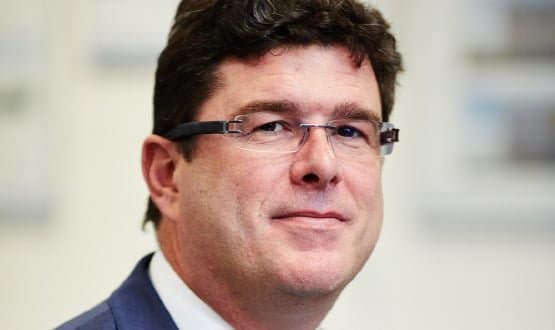All SystmsGo
- 19 February 2013

In contrast to the “big-bang” implementations that have brought many trusts to grief, Airedale NHS Foundation Trust has taken a softly, softly approach to its electronic patient records deployment.
When the trust decided to take TPP’s new acute functionality in April last year, it chose to replace its current processes like-for-like and work on service improvement later.
Head of health records Sue Hardeman says this meant the change-over went a lot better than anyone could have imagined.
“Six months to a year ago, if you said ‘we are going to change the PAS system’, you would have heard a lot of groans. We did it in 2007 and it went on for years. This time it went at a pace and it was very successful,” she explains.
“We tried to replace like-for-like rather than introduce new processes which would have slowed things down considerably.”
Why TPP?
Early last year, Airedale needed to replace its iPM PAS and TPP was looking for a reference site for its new suite of acute products. The trust and the company have worked together in the past – the trust uses SystmOnefor its community staff –so working together again seemed like a good fit.
TPP and Accenture signed a three-year agreement with Airedale to implement TPP’s hospital system and within seven months of signing-up, the trust had replaced its PAS and A&E systemand is now using bed management in two wards, in A&E and the medical assessment unit.
The contract never went out to OJEU because it was under the threshold of £113,000 for supplies or services.
Over the next six months,bed management and e-discharge will be fully rolled out and the trust is looking at deploying e-prescribing.
Airedale director of operations Chris Miles says the trust also gravitated towards TPP because of the system’s high level of usage among the localGP population.
“It was going to mean more work for us – because we are developing the system with them – but we thought the outcome would be so much better that it was worth doing it,” she says.
“We’re looking to develop these modules so we have en EPR at the end of it, but one that’s a single record with the GP.”
Doing its own thing
Airedale is, of course, in the North, Midlands and East region of England, where CSC was due to deploy the much-delayed Lorenzo system to healthcare communities.
An interim agreement between the company and the Department of Health means there are financial incentives for trusts interested in taking CSC’s EPR.
Tim Ryecroft, head of IT and information governance, confirms that Airedale considered the Lorenzo deal, but went with TPP because of the unique chance to contribute to a single patient record that has already been in existence at GP level for many years.
He adds that this decision was clinically driven. Meanwhile, although the trust is fully supportive of health secretary Jeremy Hunt’s aim to have a paperless NHS by 2018, he believes aiming to become “paper-lite” is more achievable.
Ryecroft is also confident that the trust’s progress will fulfil the extensive new data requirements coming out of the NHS Commissioning Board, which is looking to collect huge new datasets to monitor quality and efficiency and deliver on the government’s transparency agenda.
“On the wards it’s about finding the technology to make it easy quick and safe to keep that data,” he explains. “At the moment, it’s fair to say the preferred option is paper.
“I’m more concerned about allowing clinicians to drive the agenda because throwing technology at a claim that we should be digitised is perhaps not the most appropriate starting point. It’s about changing the way we work and think.”
Where to from here?
Around 500,000 patient notes have been migrated into the new system.This massive task did not involve simply moving data from one system to another, but integrating hospital data into a pre-existing electronic patient record.
“We are getting all the major reports that we need out of the system, but there’s more work to do to make reporting more sophisticated and straight-forward,” Ryecroft says. “TPP are aware of that and very supportive of driving that forward.”
Less than three months after go-live with SystmOne, Miles says the trust is back to where it had been with its old PAS.
“The next thing is for the IT and operational team to work together so it’s an operational project supported by IT,” she adds.
A strengthened service improvement team is looking at changes that can be made to the trust’s processes and pathways using SystmOne.
For example, the team looked at the clerking process for A&E and the MAU and discovered patients were being clerked twice. Staff now use combined forms so patients are only asked questions once.
The trust cannot provide any figures yet regarding efficiency gains, as current costs and processes have to be benchmarked.
But early indications of benefits are provided by Ian Hargreaves, assistant director of the medical director’s unit,who says that hospital consultants are already starting to retrieve information about their patients from the shared record.
The medical director himself recently changed his treatment plan for a patient who presented at the weekend, after being able to see a letter attached to his GP record.
In the week of EHI’s visit, the trust had also started pre-populating admission documentation from the shared record. Thisnot only speeds up the admissions process, but has potentially huge safety benefits.
Airedale is also keen to trial tablet computers on ward rounds to allow consultants to do things like signal that a patient is ready for discharge in real-time.
What do GPs get?
While Airedale is not currently adding any information to the shared record, GPs can go in and see if patients have appointments booked.
Hargreaves describes how in one case this meant a GP chose not to review a patient’s medication at an appointment as he could see they were going to see a specialist in a few weeks’ time.
Airedale uses SunquestICE to send letters to GPs, but A&E discharges are now being sent directly via SystmOne, in which GPs get an alert that new information exists.The trust has also been testing sending patient clinic letters to the GP using SystmOne.
The ultimate vision is that because there is only one record, clinicians will not need to send ‘discharge letters’ or referral information to each other, but rather an alert in the system will appear and point them to the relevant information.
TPP head of clinical system analysts Duncan Davidsexplains in a presentation that when designing an acute system, TPP had to take into account that not all GPs useSystmOne.
Connection to the Summary Care Record via the Spine and integration with the Medical Interoperability Gateway can help toshare data between those GPs andTPP hospitals.
But what do the staff think?
Rachel Binks, nurse consultant – critical care, says that as soon as the system went live, clinicians in A&E and GPs could see that it would be “fantastic”.
“There’s still some teething problems because there’s so much we can do with it,” she says.“I like the fact that we can see the whole patient journey.”
Binks believes that with more trainers, staff will quickly learn about all the things they can do with the system.
Davids says a key benefit for the TPP team was having direct access to the people who would be using the system. The company has a three-week release cycle so could be very responsive to change requests.
Hargreaves comments: “Everybody seems to be quite impressed. Things went better than expected and anything people want doing we can look at – and perhaps get it done within three weeks, which is something we have never experienced before.
“People are quite positive about that and are therefore coming forward with suggestions about service process improvements.”Everyone knows process change is difficult, perhaps letting trust staff lead the way is the key?




